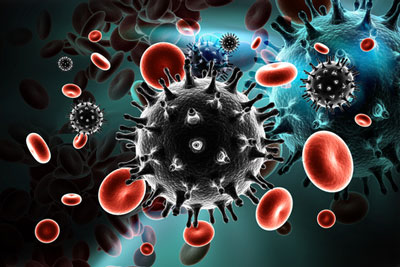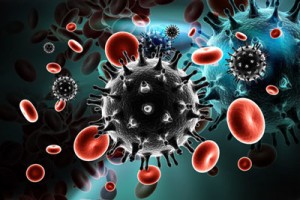Mechanism of action of First-in-class anti-HIV drug, ABX464, published
Posted: 13 April 2015 |
ABIVAX, a biotechnology company developing first-in-class anti-viral drugs and vaccines, has announced publication of the mechanism of action of ABX464…


ABIVAX, a clinical phase II stage biotechnology company developing first-in-class anti-viral drugs and vaccines, has announced publication of the mechanism of action of ABX464 in Retrovirology.


ABX464 is a novel small molecule in phase II clinical trial that inhibits HIV replication through an entirely new mechanism.
The research described in the publication was conducted by six research institutions from France, Canada and Switzerland, in addition to the ABIVAX laboratories, under the leadership of Professor Jamal Tazi of the Molecular Genetics Institute at CNRS in Montpellier, France.
ABX464 blocks viral replication by preventing the export of viral RNA from the nucleus to the cytoplasm in infected cells
The research team was able to demonstrate that:
- ABX464 blocks viral replication by preventing the export of viral RNA from the nucleus to the cytoplasm in infected cells. This transport is normally mediated by a viral protein called Rev, and the activity of Rev is efficiently inhibited by ABX464. Never targeted before, Rev has been postulated of potential interest for HIV treatment for some time, but ABX464 is the first molecule under development aimed at inhibiting it. Jamal Tazi, senior author of the article, stresses that “ABX464 targets an event after the genetic material of the virus has been integrated in the cell. This way, ABX464 not only prevents the infection of new cells, but it is the only drug to date that can act on already infected cells and prevent the synthesis of new viruses.” He added, “Therefore the difficult-to-reach reservoir of infected cells remaining under current HIV therapy may become reachable.”
- ABX464 does not affect the physiological cellular RNA-processing in humans. This suggests that ABX464 is specific for HIV RNAs and does not influence the synthesis of human proteins.
- ABX464 does not lead to HIV mutants that become resistant to treatment. In contrast to all other anti-HIV drugs, ABX464 may be effective as a monotherapy.
Professor Mark Wainberg, former President of the International AIDS Society and co-author of the publication, said “We are very encouraged by the data obtained with ABX464, which has the potential to become part of a functional cure strategy for patients with HIV and AIDS.”
Didier Scherrer, Ph.D., Vice-President of Small Molecules R&D at ABIVAX said, “As a result, ABIVAX has received authorisation to carry out clinical studies with ABX464, following the phase I trial in human volunteers which was initiated in early 2014. Based on the safety and PK data, ABX464 progressed to a phase IIa trial in patients, which was begun several weeks ago. The goal of this study is to determine the optimal dose and frequency of administration.”
Professor Hartmut J. Ehrlich, M.D., CEO of ABIVAX, concluded, “We are very excited about the data obtained so far with ABX464, as they indicate that ABX464 is safe and may be less frequently administered than standard therapies, thereby potentially improving outcomes and compliance, helping to reduce healthcare costs and offering broader access to treatment.”




